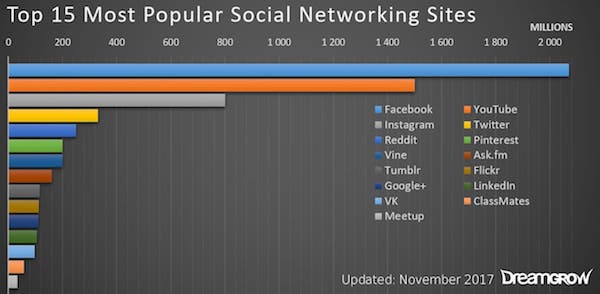
Odilon Redon Sunset 1902

When George Orwell wrote “1984” in 1948, not only did he foresee where advanced technology would bring society, he also foresaw that such technology would become available. At that time, this meant two enormous insights in one. A Big Brother may arise among power hungry forces, but it can do nothing without the technology to control and trace people. And 73 years ago, it wasn’t obvious that this would ever be reality.
But today it is here. If there’s anything the Covid era -virustime- teaches us, it is that. We are now all required to think the same, and act the same, as everyone else, and as scripted by powers that -more than ever- oversee our every move. What 1984 should have taught us, but didn’t, is that once you allow such powers to acquire such oversight, they will never let go. You need to stop them beforehand.
Because if you don’t, they will squeeze you ever tighter, until you have no freedom, no liberty, and finally no personality left: you will no longer be human in the sense that it has long been defined. There is a history and a name for this.
COVID, Learned Helplessness, and Control
Learned helplessness is well-documented. It takes place when an individual believes he continuously faces a negative, uncontrollable situation and stops trying to improve his circumstances, even when he has the ability to do so. Discovering the loss of control elicits a passive reaction to a harmful situation. Psychologists call this a maladaptive response, characterized by avoidance of challenges and the collapse of problem-solving when obstacles arise. You give up trying to fight back.
You could push back, but you have been made afraid at a core level and so you just give in. You’re left believing nothing will fix this. Helpless to resist, you comply “out of an abundance of caution.” American psychologists Martin Seligman and Steven Maier created the term “learned helplessness” in 1967. They were studying animal behavior by delivering electric shocks to dogs (it was a simpler time.) Dogs who learned they couldn’t escape the shock simply stopped trying, even after the scientists removed a barrier and the dog could have jumped away.
Learned helplessness has three main features: a passive response to trauma, not believing that trauma can be controlled, and stress.{..] You are not responsible, can’t fix something so systemic, and best do what you are told. The way out is to allow people to make decisions and choices on their own. This therapy is used with victims of learned helplessness such as hostages . During their confinement all the important decisions of their life, and most of the minor ones, were made by their captors. Upon release, many hostages fear things as simple as a meal choice and need to be coaxed out of helplessness one micro-choice at a time.
There is no such thing as overwhelming evidence that year-long lockdowns and mask mandates and “the vaccines” can achieve their alleged goals. But that doesn’t matter if and when there is central control over what evidence -and narrative- people are allowed to read and watch. With that kind of control, there is simply just one story, and no discussion.
Whereas discussion, with different views and opinions being submitted, is essential to come out of a situation like this. Two people know more than one, basic stuff. We’re good at it, if we try. But if you look at the media, and the entire medical field, there is on discussion happening. There is only one opinion, and it’s -state and corporate- sanctioned.
I don’t find the stories about the origin of the virus all that interesting -at this moment-, they act mostly as a distraction from what is more important: freedom, having a voice in one’s own life, making your own decisions, and saving lives in the process. The virus origin stories, crazy as they may be, have nothing to do with that: they merely make you watch a sort of battle of the gods, something that never gave anyone any power over their lives.
And in the meantime you may be “allowed” some extra basic human rights, but not too many, you wear a mask on your face, and you get injected with a substance that for 99% of people is both unnecessary for their survival, and potentially dangerous to that same survival. But it’s the only narrative that is “allowed”.
As for the potential danger, it’s not just the blood clots that the media are allowed to report on, it’s also the spike proteins the vaccines induce your cells to produce, and which are free to roam around your body, gathering in testes, ovaries, placenta and a whole slew of other organs.
All we can do is hope our immune systems are strong enough to fight off the vaccines.
Seldom should any substances have been subjected to more rigorous research than mRNA vaccines, and seldom have any been subjected to less. So the problems should not be a surprise to anyone. Facebook now “allows” you to say that the vaccines are not FDA approved, but not that they are experimental or haven’t been appropriately tested. Which is the same thing. What gives Facebook that power to begin with?
Professor emeritus of Medical Microbiology and Immunology Dr. Bhakdi doesn’t agree. But Facebook knows better, right?
https://twitter.com/i/status/1401154680361730049
And then you get things like this line: “Britain’s medicines regulator said Friday the Pfizer/BioNTech vaccine is safe for adolescents aged 12 to 15 after a “rigorous review”, following similar assessments in the EU and US.” What rigorous review? Where is it? How much time did you take for that research? And if it was so rigorous, why are they still not approved? And what exactly is the benefit to these children? A 0.001% higher chance of survival? Vs a 10x higher chance of suffering adverse effects?
Anyway, one step back. Yes, the vaccines are completely unnecessary. Michael Yeadon, former Chief Scientific Officer of Pfizer put it like this:
“Ivermectin is an off-patent drug that is one of the most widely used drugs in the world, and we know it is able to reduce Covid-19 symptoms at any stage of the disease by about 90%, so there is no need for vaccines.”
A 90% reduction of symptoms means no need for vaccines OR facemasks OR lockdowns. That’s ostensibly better than any of the vaccines can achieve. And this could have started at least 6 months ago (I’m thinking of Pierre Kory’s Dec. 8 Senate testimony here, conveniently killed off by YouTube), and after 6 months of a 90% reduction, there is no danger left at all.
Dr. Pierre Kory said if you take ivermectin, you won’t get sick (and it’s safer than Tylenol). Renowned science writer Michael Capuzzo recently wrote The Drug That Cracked Covid. And couldn’t get it published. Here at the Automatic Earth, we’ve been discussing ivermectin for over a year, especially after our resident physician John Day switched to it from hydroxychloroquine to treat his Covid patients.
This is from a very recent report written by Pierre Kory and the team at FLCCC published in the American Journal of Therapeutics :
It should be noted that the concentrations required for an effect in cell culture models bear little resemblance to human physiology given the absence of an active immune system working synergistically with a therapeutic agent, such as ivermectin. Furthermore, prolonged durations of exposure to a drug likely would require a fraction of the dosing in short-term cell model exposure. Furthermore, multiple coexisting or alternate mechanisms of action likely explain the clinical effects observed, such as the competitive binding of ivermectin with the host receptor-binding region of SARS-CoV-2 spike protein, as proposed in 6 molecular modeling studies.21–26
In 4 of the studies, ivermectin was identified as having the highest or among the highest of binding affinities to spike protein S1 binding domains of SARS-CoV-2 among hundreds of molecules collectively examined, with ivermectin not being the particular focus of study in 4 of these studies.27 This is the same mechanism by which viral antibodies, in particular, those generated by the Pfizer and Moderna vaccines contain the SARS-CoV-2 virus. The high binding activity of ivermectin to the SARS-CoV-2 spike protein could limit binding to either the ACE-2 receptor or sialic acid receptors, respectively, either preventing cellular entry of the virus or preventing hemagglutination, a recently proposed pathologic mechanism in COVID-19.21,22,26–28
Ivermectin has also been shown to bind to or interfere with multiple essential structural and nonstructural proteins required by the virus to replicate.26,29 Finally, ivermectin also binds to the SARS-CoV-2 RNA-dependent RNA polymerase (RdRp), thereby inhibiting viral replication.30
Dr. Kory estimates that 500,000 deaths could have been prevented with ivermectin treatment. The same is likely true for hydroxychloroquine. And he’s probably deliberately lowballing it. Then there’s vitamin D, and zinc, and a dozen or so repurposed drugs. All put together, there is no doubt they make the vaccines superfluous.
And yes, if someone is responsible for 500,000 deaths, there must be an investigation, just like there must be one into the origin of the virus. Why suppress ivermectin and other drugs, and at the same time promote vaccines without properly testing them? Who made those decisions? But right now, it seems more important to make sure that no more people die unnecessarily. Take care of that first, and then investigate.
In “1984”, the idea is that everybody must do the same thing, and think the same thing. In 2021, they do. Nothing good can come from that.

We try to run the Automatic Earth on donations. Since ad revenue has collapsed, you are now not just a reader, but an integral part of the process that builds this site. Thank you for your support.

Support the Automatic Earth in virustime. Click at the top of the sidebars to donate with Paypal and Patreon.










